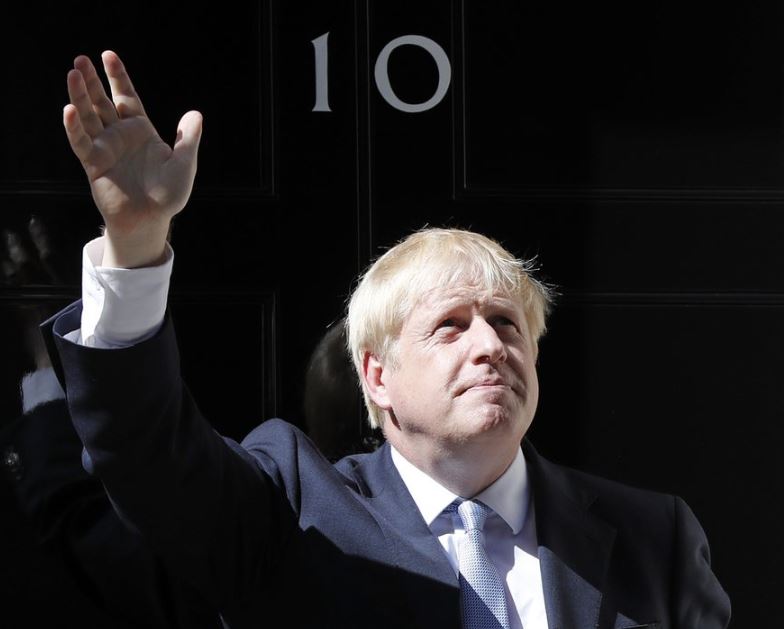
(Photo: AP)
LONDON, Sept. 24 (Xinhua) -- British Prime Minister Boris Johnson said Tuesday he will not resign in the wake of a Supreme Court ruling that his suspension of the House of Commons was unlawful.
As MPs headed back to London for a re-opening of parliament Wednesday, Johnson was in New York addressing business leaders. He is expected to leave the US Tuesday to return to London.
Speaking to journalists in New York, Johnson said he would not resign as prime minister.
In his first interview following Tuesday's landmark court ruling, Johnson told London-based Sky News he disagreed with the court's decision.
He said: "As the law currently stands the UK leaves the EU on 31 October, come what may. But the interesting thing, the exciting thing for us now, is to get a good deal. And that's what we're working on."
Johnson added: "It's not made much easier by this kind of stuff in parliament, or in the courts. Obviously getting a deal is not made much easier against this background. But we're going to get on and obviously this is a verdict that we will respect and we respect the judicial process.
"I have to say that I strongly disagree with what the justices have found. I don't think that it's right but we will go ahead and of course parliament will come back ... I don't think this was the right decision, I think that the prorogation has been used for centuries without this kind of challenge."
Johnson said there was no doubt there are a lot of people who want to frustrate Brexit, the process of Britain leaving the European Union.
"There are a lot of people who basically want to stop this country from coming out of the EU. And we have a parliament that is unable to be prorogued, it doesn't want to have an election, and I think it's time we took this forward."
Opposition parties at Westminster have called on Johnson to resign following the decision of the Supreme Court. Queen Elizabeth II signed the order to prorogue the parliament, but the judges said the government's advice given to the monarch was wrong.


